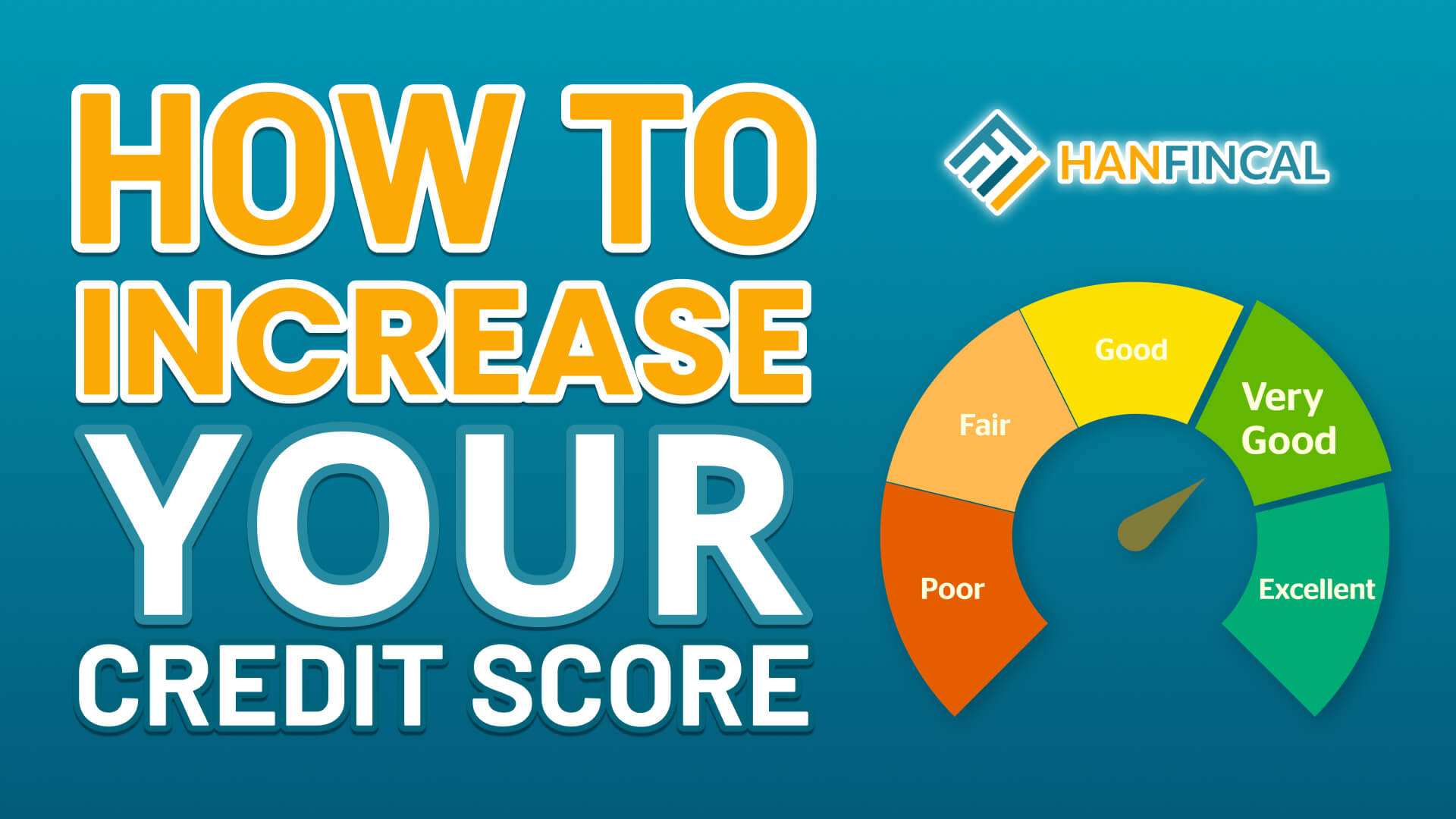How to build credit? A good credit score is helpful for more than just getting a credit card or a loan. The higher your credit score, the lower your interest rate will be. However, bad credit can indicate that you’re a high-risk bet. So, why are you still hesitant to begin building your strong credit history today? According to Hanfincal, good credit’s most significant financial benefits are all financial. Don’t dismiss or undervalue it in this article.
1. How to build credit?
To be an authorized user, the primary account holder adds your name to their credit card account, granting you access to it. You’ll get a credit card linked to the account, but you won’t have all the same rights as the primary account holder.
You can use someone else’s credit if you are added as an authorized user to their credit card. Most issuers report authorized user data to the three major credit bureaus — Experian, Equifax, and TransUnion — but you should check with your issuer to confirm; otherwise, your credit-building efforts may be futile. Keeping this in mind, you should only accept an account owned by someone with good (670-799) or excellent credit (800-850).
When you are in this role, you can use that credit card to make purchases. In an ideal world, the account is added to your credit report, and the primary cardholder’s good credit management assists you in improving your creditworthiness.
Adding yourself as an authorized user to an account with a long history of on-time payments is one way for building credit potentially, especially if your credit history is limited, damaged, or nonexistent. Furthermore, being added as an authorized user might shorten the time it takes to create a FICO score.
1.2. Get a secured credit card
People with bad credit or no credit may find it difficult to obtain approval for a credit card at all. Secured credit cards make it possible for almost anyone to get approved and begin building a credit profile.
This type of card requires people to deposit cash into a bank account equal to the card’s credit limit (known as a collateral account). Many cardholders can upgrade their secured card to a non-secured counterpart and return their deposit if they behave responsibly. However, still have some companies offer alternative credit cards that don’t need a security deposit. Try to choose the best secured credit cards based on your needs such as cards with a low annual fee.

Get a secured credit card
You will use the card in the same way that you would any other:
- Purchase items.
- Make payments on time.
- Incur interest if your balance is not paid in full.
A secured credit card is not intended to be used indefinitely. The goal of this card is to build enough credit to qualify for an unsecured card, which doesn’t require any deposit and offers better benefits. Your credit score is calculated using information from your credit reports and reported to all three bureaus to enable you to build a complete credit history.
1.3. Get credit for the bills you pay
If you pay all your utility bills on time and report this activity to a credit bureau, it may benefit in building credit score. However, keep in mind that those bills are only one possible factor in credit scoring. In addition, falling behind on them or other bills could have negative consequences.
Simply paying the bills of gas, electric, or water on time won’t work well if you want to lift your credit score. This is because bills are typically only reported on a credit report when they are past due. Suppose you are significantly behind on your bills. In that case, your gas, electric, or water provider may refer your account to a collection agency, which may or may not forward the information to one or more credit bureaus. Of course, paying on time will build your credit, as long as the absence of “negative” items doesn’t lower your score.
Experian Boost allows you to have your cell phone and bills reflected in your credit report. It’s worth noting that the effect is limited to your Experian credit report — and any credit scores based on it.
1.4. Practice good credit habits
To have a FICO score, you must have at least one account that has been active for six months and at least one creditor that has reported your activity to the credit bureaus in the last six months. Credit scores do not become good or excellent overnight; it takes time and practice. Here are some things you should do regularly to start building your credit as soon as possible:
- You must pay your bills on time.
Making payments on time is the most important thing that can help you start building credit. Consider setting up automatic monthly payments for at least your minimum amount to avoid accidentally missing a payment deadline.
- Check your credit score frequently.
It’s always meaningful to know where you stand with your credit score and how it’s changed: It helps you understand the impact of your actions on your scores, detect any problems that may be brewing, and reverse course if you are veering off course.
- Maintain a low credit utilization rate
Credit utilization compares your credit card balances to your available credit limits. The lower your credit utilization, the better your credit score. As a general rule, keeping your utilization below 30% will protect your credit score; those with the best credit tend to have credit utilization ratios in the low single digits.
- Avoid opening too many credit accounts at the same time.
Credit applications can cause a small, temporary drop in your score. However, too many recent credit applications can hurt your creditworthiness. If possible, space your applications for six months and research the best credit cards for your needs before applying.
- Maintain credit card accounts.
Consider keeping an account open unless you have a compelling reason to close it. Closing an account can reduce your average account age and credit utilization. You could also think about downgrading it or transferring your credit limit to another card.
Struggling with credit cards? Immediate relief awaits! Answer a few questions to qualify for personalized assistance.
1.5. Pay off any existing debt
Paying off your debt helps you get a head start on your goals, whether to apply for a new line of credit, save on borrowing costs, or reduce your debt. Of course, having too much debt at the same time can severely damage your credit. Use the debt avalanche or debt snowball method to pay down existing debt to reduce your credit utilization ratio and improve your score quickly:
- Debt avalanche method: Pay off your highest-interest debt first, then the debt with the next highest interest rate, and so on. However, to avoid penalties, make the minimum payments on any other cards used in the process.
- Debt snowball method: Pay off your smallest balances first while still meeting the minimum payment requirements on your other cards.

Pay off any existing debt
1.6. Request a credit limit increase
If you keep your spending the same, increasing your credit limit improves your credit utilization ratio. In general, a credit balance that is a small percentage of your total available credit is considered responsible credit use and may improve your credit score.
If you want to raise your credit limit, you can do so by calling customer service or requesting a credit limit increase online. It’s a very straightforward procedure. Don’t be disheartened if your request is turned down. When the timing is right, the issuers may increase your credit limit in the future.
Remember not to become greedy with a higher credit limit. You will defeat the purpose of this strategy if you decide to overuse your new limit.
One quickest way to help you add some scores to your credit is to get from reputable online centers. Here is one you can give your trust. This option is optimal and ideal for those who want to boost their credit score as fast as possible for emergency needs. Click the link below if you also want to:
1.7. Pay all your bills on time
The essential factor in credit building is a track record of on-time payments when it comes to credit building. Your payment history accounts for 35% of your FICO credit score. This means that you should always make an effort to pay your bills on or before the due date.
Paying your bills on time will not only improve your credit score but will also save you money. In addition, you can avoid being charged a late fee or penalty, which can be as high as $35.
Consider setting up automatic monthly payments for at least your minimum amount to avoid accidentally missing a payment deadline.
If you discover you’ve missed a payment, contact the lender as soon as possible to make the necessary arrangements. Any bill made more than 30 days after the due date can be reported to the credit bureaus for seven years.
1.8. Get a credit-builder product or a secured loan
A credit-builder loan lets you demonstrate that you can handle consistently making on-time payments while building or rebuilding your credit. And because your payment history is such an essential factor in calculating your credit scores, this can help you build credit.
Typically, the money you borrow is held in an account by the lender and is not released to you until the loan is repaid. It’s a sort of forced savings plan, and your payments are reported to credit bureaus.
Another option is to choose a secured loan. This credit-building loan can help people with bad credit or no credit get approved and build a credit profile.
1.9. Use a co-signer
When a person cannot qualify for a loan on their own, a co-signer steps in. This could be because they’re young and haven’t yet established a credit history, or it could be because they’ve had financial difficulties in the past, and their credit has suffered as a result. A co-signer can also be used to obtain a loan or an unsecured credit card.
A co-signer typically has a steady income. Lenders can quickly approve a loan when two people are responsible for repaying it, and at least one of them is a highly qualified borrower. Another consideration is that your co-signer is liable for the entire amount owed if you do not pay.

Use a co-signer
1.10. Consider Experian boost or UltraFICO
Using additional accounts is another excellent way to strengthen your credit. When you have no credit history, opening new accounts can help you improve your score. You have two options that may be of assistance to you: UltraFICO and Experian Boost:
- UltraFICO: This is a program that adds information about your bank account balances, cash flow, and bank transactions to your credit report. However, the UltraFICO score is not used or accepted by every lender.
- Experian Boost: It examines your utility, streaming, and other accounts and adds on-time payments to your Experian credit report.
2. Check your credit scores and reports
A credit report is a record of how you’ve previously used credit. Your credit scores predict how you’ll handle credit in the future. You’ll want to keep an eye on both to look for errors and see if your credit-building efforts are paying off.
It is critical to check your credit reports regularly to ensure that your personal and financial information is correct. It also aids in ensuring that no fraudulent accounts have been opened in your name. If you discover errors on your credit report, take the necessary steps to correct them.
Several issuers print FICO scores on monthly statements and provide online access as well. Moreover, some issuers offer free credit scores to anyone, cardholder or not.
Request your annual credit reports and thoroughly review them for errors and discrepancies. Dispute any credit report errors that you discover that are lowering your scores. You can check your reports for free every week until April 2022.
These ten tried-and-true financial habits on how to build credit can be your best weapons to enhance your credit history as high as possible. Let’s make every effort to take advantage of what you can do to break your poor credit and build a strong counterpart. Hanfincal is here to follow all your steps in your enhancing credit journey.
==> Read More:




